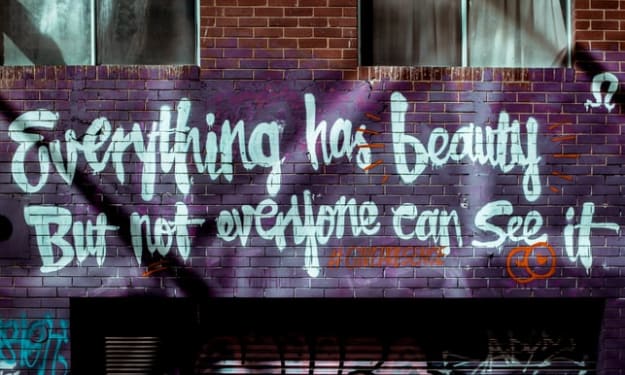
I believe that it was 2017 when I was diagnosed with Bipolar Disorder, Type II.
I was 21 years old.
At a turning point in most people's lives, their early twenties, I was finding out that I had a mental illness that would never go away and could never be fixed. Yes, I could remedy some things with medication and therapy, but it would be a lot of work for the rest of my life, and it would be very hard.
Yet I felt relieved, because I finally had an explanation for what was going on in my head.
My cycling was rapid in my high school years, switching moods multiple times in one day. It slowed down as I got older. Now I'll have small periods of hypomania, followed by larger periods of depression, and a little bit of normalness. It's a lot of depression, honestly.
But Bipolar Disorder never explained why I was so emotionally reactive. Last year, I was diagnosed with traits of Borderline Personality Disorder. That explained the outbursts of emotion and how I was so sensitive. For my whole life, I have been extremely emotional and sensitive. Almost anything makes me cry, from commercials to someone looking at me the wrong way.
The moral of the story? I didn't even get my diagnosis fully figured out until I was 24. And that's young. Plus, my diagnosis could still change with time. My social worker and I talked about Post-Traumatic Stress Disorder, and my psychiatrist confirmed that I do have some traits of it.
But no matter what, I'm still me. And I learned with time that my diagnosis doesn't really matter, as mental illness presents itself differently in each person.
If you're struggling, remember that time is always moving and life is always constant.
At the age of 21, I wanted to be dead, and I almost was.
At the age of 24, I was starting a therapy program and committing to it.
At the age of 25, I finished that program. I feel like I accomplished a lot by completing it, and I worked hard to get where I am right now.
Now I'm working on my trauma, which has been hard, but nothing that I can't handle. I'm finally feeling like I'm at a stable place with my medication, so that is helping me move through the trauma work and somehow manage to look brighter and more alive every week.
I was facing hard at 21, too. And I moved through it, finding a medication that stabilizes me and a support team that I enjoy talking to.
I'm facing hard at 25, looking at trauma work. I feel emotionally drained after my sessions, and there may be some homework, but I don't mind. I always have to remember that time heals, and I'll be fine in probably just a few hours.
I always have to remember that I am capable of getting through almost anything. I am strong, resilient, and truly amazing. If you haven't hyped yourself up today, take the opportunity to right now. Come on, do it, you know you want to.
I am surprised by the fact that my trauma work hasn't been too hard yet, but it can always get harder.
I'll still be facing hard at 35, 45, 55, and so on. For the rest of my life.
But we move through the hard because we must, and we ride the waves of time until we reach the shore safely.
If you're feeling alone, unsafe, or depressed, visit https://checkpointorg.com/global/ for resources.
About the Creator
Amanda Doyle
Currently in my "figuring it the hell out" era.
Big believer in everything happening for a reason, second chances, and the fact that we're living in a simulation.
Check out my podcast: https://podcasters.spotify.com/pod/show/semimindfulbanter






Comments
There are no comments for this story
Be the first to respond and start the conversation.